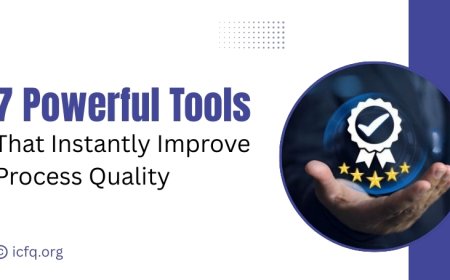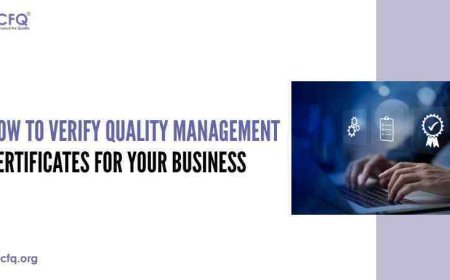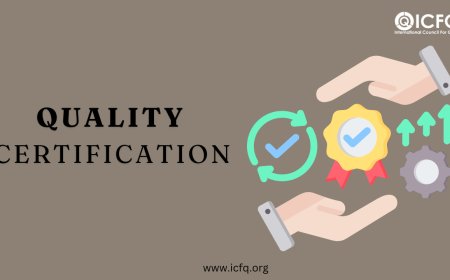How ISO Standards for Quality Help Startups
See how adopting ISO standards can guide startups to maintain quality, improve efficiency, and earn customer trust.
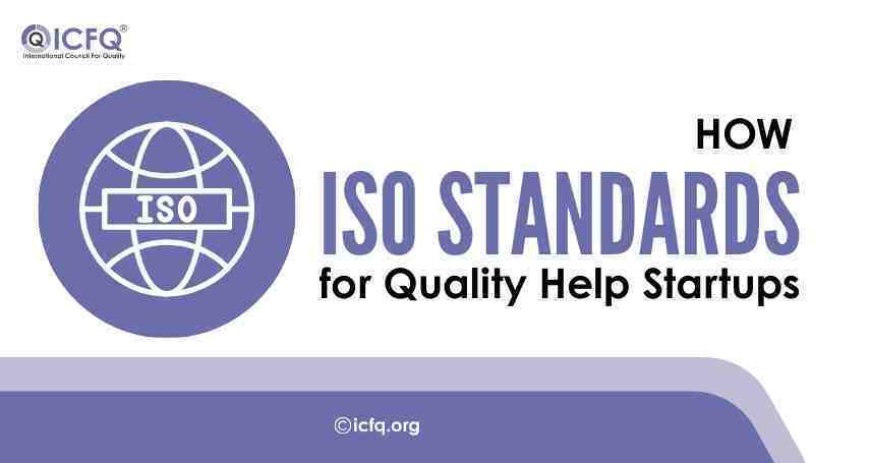
Running a startup is exciting, but it also comes with challenges, especially when it comes to maintaining quality. Many young businesses focus so much on growth and innovation that they overlook quality management, which often leads to inconsistent results, unhappy customers, and lost opportunities.
From my experience working with small businesses, I’ve seen how the absence of structured systems can slow down operations and reduce trust. This is where ISO standards for quality make a difference. They provide globally recognized frameworks that guide startups in building reliable processes, ensuring consistency, and earning credibility from day one.
According to studies, 90% of customers say quality affects their buying decisions, startups that adopt structured standards are 40% more likely to attract investors, and companies with ISO certification grow 15% faster compared to non-certified ones.
What Are ISO Standards for Quality?
ISO standards for quality are internationally recognized guidelines designed to help businesses maintain consistent performance, reliability, and customer satisfaction. For startups, these standards act as a roadmap to build structured processes, minimize errors, and compete in the global market.
The most widely adopted framework is ISO 9001, which focuses on quality management systems (QMS). It ensures that every step of production or service delivery is tracked, measured, and improved continuously. Understanding the ISO certification meaning is important here, it represents global recognition that your business follows proven practices.
By embracing ISO certification for quality, startups can prove their commitment to excellence, not just through words but through globally recognized certifications.
Why Startups Need ISO Standards for Quality
Startups often focus heavily on innovation, product launches, and growth. But without strong quality systems, they risk losing credibility early. Here’s why startups should prioritize iso standards for quality:
-
Customer Trust: Certifications reassure customers that products or services meet global standards.
-
Investor Confidence: Investors prefer startups that follow structured processes and reduce operational risks.
-
Competitive Edge: Certification differentiates startups in crowded markets.
-
Operational Efficiency: Streamlined processes reduce waste, errors, and costs.
-
Global Market Access: ISO certification meaning extends beyond paperwork, it’s often a requirement for international business deals.
Main Benefits of ISO Standards for Quality in Startups
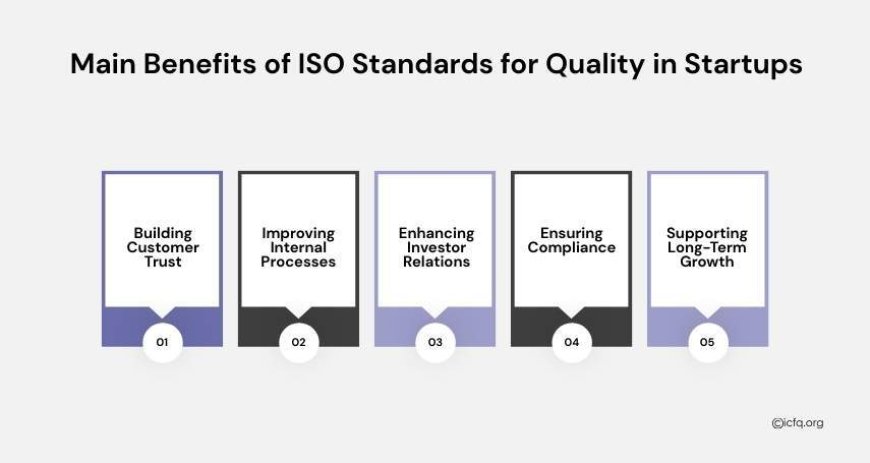
-
Building Customer Trust
Startups compete against established players with strong reputations. ISO standards for quality provide proof that even a new business operates at a world-class level.
-
Improving Internal Processes
With limited resources, startups cannot afford inefficiencies. These standards bring structured workflows, accountability, and measurable improvements, helping teams work smarter.
-
Enhancing Investor Relations
A startup with ISO certification for quality demonstrates maturity and reliability, making it a safer investment option.
-
Ensuring Compliance
ISO requires startups to align with legal and industry needs. For example, following an ISO 9001 clause ensures the business meets critical quality requirements.
-
Supporting Long-Term Growth
Consistency is key to scaling. By following ISO guidelines, startups replicate quality across multiple markets and achieve sustainable growth.
Key ISO Standards for Quality Relevant to Startups
While ISO 9001 is the most common, other standards also add value depending on the industry:
-
ISO 9001: Quality Management Systems – improves consistency and customer satisfaction.
-
ISO 14001: Environmental Management – helps eco-conscious startups reduce environmental impact.
-
ISO 27001: Information Security – crucial for tech startups to secure data.
-
ISO 45001: Occupational Health & Safety – ensures safe workplace practices.
-
ISO 22000: Food Safety Management – important for startups in the food and beverage sector.
Understanding ISO 9000 and ISO 14000 also helps startups broaden their approach. ISO 9000 focuses on the fundamentals of quality management and terminology, while ISO 14000 emphasizes environmental standards, together, they shape a more sustainable and reliable business.
Selecting the right ISO certification for quality depends on the startup’s sector, target audience, and long-term vision.
Challenges Startups Face Without ISO Standards for Quality
Startups that delay or ignore implementing quality standards face risks that can affect survival:
-
Loss of Customer Confidence: Poor quality leads to negative reviews and reduced sales.
-
Operational Waste: Inefficient processes increase costs and reduce profit margins.
-
Missed Opportunities: Many contracts require certified vendors.
-
Difficulty in Scaling: Without standardized processes, quality drops as the business grows.
Without clear iso documents, these risks multiply as processes lack structure and transparency.
How Startups Can Implement ISO Standards for Quality
Adopting ISO standards may feel overwhelming for startups, but with the right approach, it becomes manageable. Steps include:
-
Identify Relevant Standards: Choose the ISO standard that aligns with the industry.
-
Gap Analysis: Assess current processes against ISO requirements.
-
Develop Processes: Document and standardize workflows with clear iso documents.
-
Employee Training: Ensure the team understands and follows ISO practices.
-
Internal Audits: Regular checks to maintain compliance.
-
Certification: Work with an accredited body to obtain certification.
Practical Tips for Maintaining ISO Compliance
Getting certified with ISO standards for quality is only the first step. The real challenge for startups lies in maintaining compliance year after year.
-
Schedule Regular Internal Audits – conduct quarterly or bi-annual audits to spot gaps early.
-
Keep Documentation Updated – update every iso document when processes change.
-
Train Employees Continuously – ensure new hires understand ISO practices.
-
Use Technology for Tracking – track corrective actions and audit results effectively.
-
Set Measurable KPIs – monitor defect rates, complaints, or delivery timelines.
-
Engage Leadership – when founders support compliance, employees follow through.
For startups, survival depends on more than just innovation, it requires building trust, ensuring consistency, and standing out in competitive markets. ISO standards for quality provide the tools to achieve this.
By adopting these standards, startups can reduce risks, attract investors, and create a reputation for reliability. It’s not just about certification, it’s about building a culture of quality that drives success.
Take your startup to the next level. Start implementing ISO standards for quality today. Contact us at [email protected]










